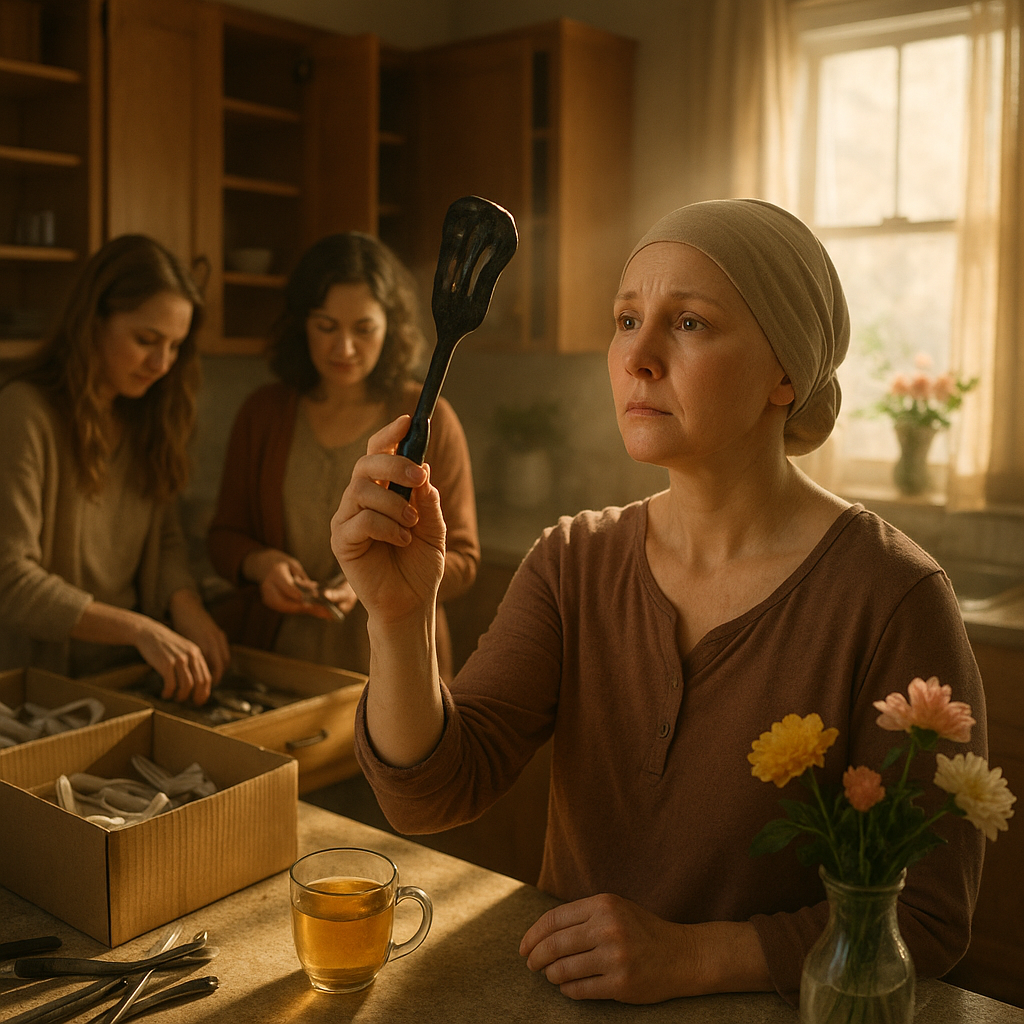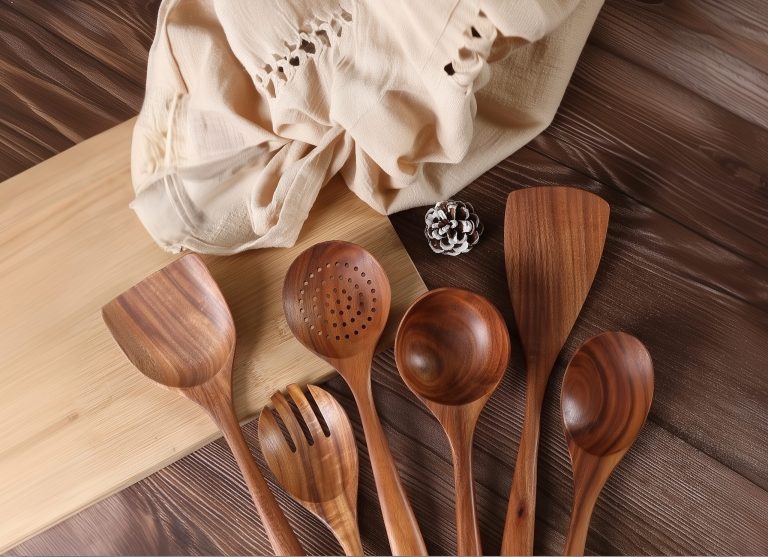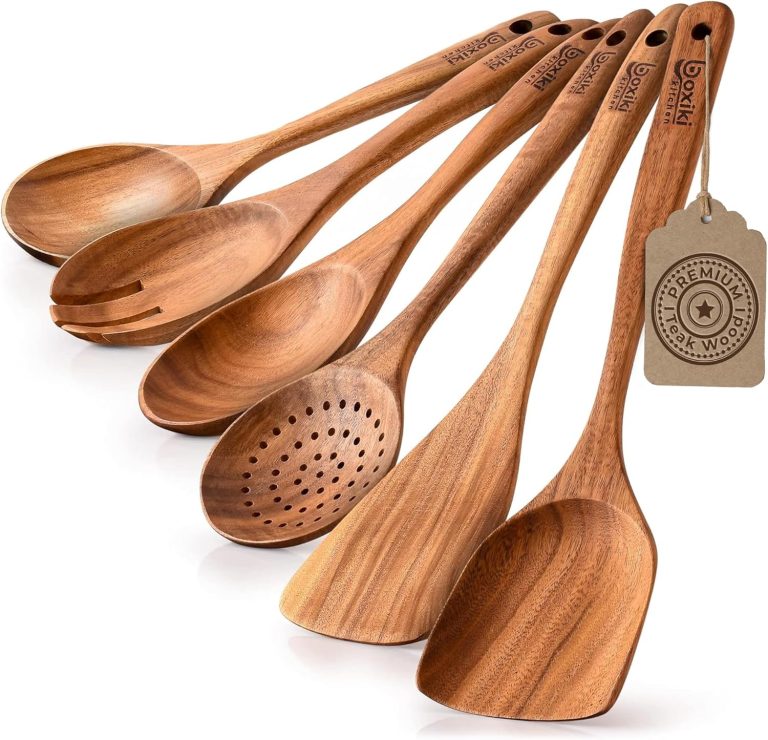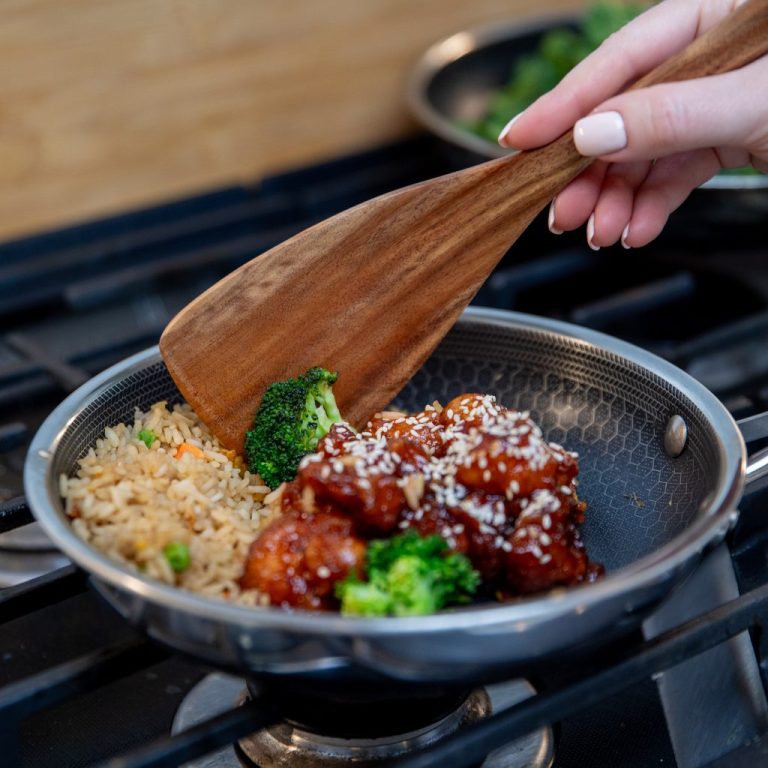🅶🅰🅻🆄🆅
ADVERTORIAL
The Family Lesson That Changed How I Cook Forever
One small swap in my kitchen gave me more confidence — and it started with something my aunt once taught me.
By Sarah
The Moment Everything Shifted
I’m a mom, a home cook, and like so many of us, I’ve spent years juggling work, family meals, and the daily push to make healthier choices.
But one family moment made me stop and look closer at my kitchen.
It was my Aunt Sarah — the one who taught me how to whisk pancake batter until it was smooth, who insisted on tasting soup before salting it. When her health struggles began, I found myself thinking about the details she always cared about: the ingredients, the tools, and the little habits we don’t notice until they matter.
That realization sent me back to my own utensils drawer — a jumble of scratched plastic spatulas, warped nonstick flippers, and bargain-bin spoons. I couldn’t help asking myself:
If these tools are what my family’s food touches every day, shouldn’t I know more about them?

Health experts often remind us: well-being isn’t determined by a single choice or event. It’s the small things — the daily exposures, the habits that compound over time.
When I started researching, I found studies and health-agency reports that made me think twice about the tools I used every day.
- The U.S. Agency for Toxic Substances and Disease Registry (ATSDR) notes that certain “forever chemicals” (PFAS), once used in some coatings, can remain in the body and environment for long periods. Researchers are studying their potential links to immune and other health effects.¹
- The Endocrine Society and peer-reviewed journals have documented how endocrine-disrupting chemicals (EDCs), sometimes found in plastics and coatings, can interfere with hormone systems at certain levels of exposure.²
- A 2022 paper in Environmental Health Perspectives explored how PFAS exposure relates to oxidative stress and inflammation — processes scientists believe play a role in long-term health.³
These studies don’t suggest that one spatula can make or break your health. But they do highlight something important: everyday tools matter, and minimizing unnecessary exposures where possible can help families feel more confident in their kitchens.
At first, the problem felt overwhelming. My drawers were full of utensils I’d bought over the years — many still “perfectly fine” on the surface. How was I supposed to know which ones were safe, or where to start replacing them?
So I set myself a simple rule: if it touches food or heat daily, it should be safe, stable, and long-lasting.
That single rule led me to a surprising solution: teak wood utensils.
Why Teak Wood?
I didn’t begin with a goal of finding “teak.” I was simply searching for materials that were:
So I set myself a simple rule: if it touches food or heat daily, it should be safe, stable, and long-lasting.
- Free from synthetic coatings,
- Gentle on cookware,
- Durable enough to last,
- And pleasant to use.
Teak checked every box. And when I finally held a teak spoon in my hand, I understood why so many chefs and home cooks have trusted it for generations.
- Naturally durable. Teak is famously dense and resistant to moisture — the same reason it’s used in boats.
- No flaking coatings. Just solid hardwood that resists warping.
- Cookware-friendly. Smooth and gentle on stainless steel, carbon steel, and cast iron.
- Feels right. Warm, sturdy, comfortable to grip — not squeaky like silicone or flimsy like thin plastic.
Most importantly? It gave me peace of mind. Every stir, scrape, and flip became one less thing I had to second-guess.
- Problem: I realized I didn’t actually know what most of my utensils were made of — or how they reacted to years of heat, scratches, and wear.
- Struggle: Replacing everything at once felt expensive and overwhelming. And with so much marketing noise, it was hard to know what to trust.
- Breakthrough: I started small. One spoon. One rule. One swap. From there, the confidence to keep going built naturally.
Making the change wasn’t about fear. It was about confidence.
Here’s what stood out from my late-night research sessions:
- ATSDR Report: Certain PFAS stay in people’s bodies and the environment for long periods, with scientists continuing to study potential health implications.¹
- Environmental Health Perspectives (2022): Links between PFAS and oxidative stress show why minimizing unnecessary exposures may matter.³
- The Endocrine Society: Reviews of endocrine disruptors show why parents, in particular, may want to limit contact where possible.²
- National Cancer Institute: Chronic oxidative stress contributes to DNA damage, and reducing unnecessary chemical exposures is one piece of prevention strategy.⁴
- None of these reports say, “a wooden spoon will protect your health.” But together, they reinforced what I was already feeling: in a world we can’t control, small, intentional swaps give us back some sense of agency.
The Set I Chose — And Why I Trusted It
After comparing for weeks, reading reviews, and asking too many questions (as my husband will happily confirm), I settled on a teak utensil set that included:
- Slotted spoon
- Skimmer
- Deep ladle
- Flat turner
- Pasta server
- Wok spatula
Why this set?
- Responsibly sourced teak with clear documentation.
- Food-safe finish — no polyurethane or mystery varnish.
- Customer reviews with real photos showing consistency and grain.
- A brand voice that talked about both practicality and safety.
What Other People Said (Social Proof)
“Great addition to the kitchen if you’re looking to replace all of your plastic utensils. Clean up easily, look beautiful too.”
Audry : 
Verified Purchase ꪜ
“Love love easily replaced plastic toxic kitchen tools”
Jack: 
Verified Purchase ꪜ
“The wooden utensils are great to use; they don’t get burnt and could leave it in the pot during cooking. They look classic. Easy to handle whilst frying food. Easy to wash even it gets oily.”
Bette Lim: 
Verified Purchase ꪜ
I still cook with Aunt Sarah’s recipes. I still laugh with her when my bread won’t rise. But I cook differently now — with more attention, with clearer choices, and with the reminder that even small swaps can add up over years.
I can’t control everything. But I can control the handle I reach for.
If you’ve ever opened your drawer of aging utensils and wondered if there’s a better way forward, maybe this is your moment to start.
One wooden spoon. One swap. One simple change you’ll use every day.
I chose teak because it gave me a sense of confidence in my kitchen — and a connection back to the simple lessons my aunt passed on.
If you’re ready to take a small, meaningful step toward a healthier-feeling kitchen, explore a teak wood utensil set.
Read the sourcing, check the finish, and choose tools that will be with you for years.
Because once you’ve cooked with the right tools, you’ll never want to go back.
References
- ATSDR — Agency for Toxic Substances and Disease Registry, U.S. Health & Human Services.
- The Endocrine Society, “Endocrine Disruptors & Health.”
- Environmental Health Perspectives, 2022.
- National Cancer Institute — Oxidative Stress and Cancer Research.
🅶🅰🅻🆄🆅
Home / Privacy Policy / TERMS + CONDITIONS / COPYRIGHT @2025 GaLuv. ALL RIGHTS RESERVED
⚠️DISCLAIMER: THIS IS AN ADVERTISEMENT AND NOT AN ACTUAL NEWS ARTICLE, BLOG, OR CONSUMER REPORT. This article reflects one family’s experience and research. It is for informational purposes only and should not be taken as medical advice. For health-related decisions, always consult qualified professionals.




